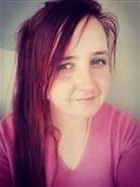






With June being Pride Month, it seemed like the perfect time to make this a priority. There are many people around the world who are still referred to by the wrong pronouns - having a platform where they can quietly inform others about this is essential in the working world we find ourselves in after the Covid-19 pandemic started.
I sat down with Dono White to discover more about him, VMLY&R and how the Proud Pronouns Project came to fruition. He has been with the company from the start and is currently leading the strategy of the Zuri tribe in Johannesburg - a small business within the business.
“I have been there since practically the beginning of the agency’s evolution. One thing that has remained true since the first day is our commitment to create purpose driven work that lives in people’s lives,” said White. “We harness creativity, technology and culture to create brands that drive value at every touchpoint for our clients. Through this we believe brand experience and customer experience need to work hand in hand to truly connect every day to live in people’s lives.”
VMLY&R (previously known as Native) is an advertising agency which focuses on reimagining the customer experience. According to White, many agencies focus on user experience and customer journey mapping interchangeably with customer experience. These are important elements, but the real focus should lie with developing a shared value both brand and consumer, leveraging brand experience to make a tangible difference.
The Proud Pronoun Project was brainstormed and brought to life through the Global LGBTQ Employee Resource Group (ERG) at VMLY&R.
The ERG practice exists to showcase and celebrate the diversity of the LGBTQ community and the unique perspectives they provide. There are three main perspectives the group focuses on:
Empower - empower workers to advocate, take action, or give back.
Inspire - inspire workers with knowledge and perspectives that arm them to be better allies or members of the LGBTQ community.
Engage - engage with workers in meaningful conversations and topics across LGBTQ through shared experiences.
“We’ve always had a Diversity, Equity and Inclusion (DE&I) presence in the company, but growing an LGBTQ ERG really kick-started in early 2019 in the US and over 2020. The LGBTQ ERG expanded globally, knowing how levels of acceptance both legally and socially vary for all our colleagues all over the world. With this in mind we constantly strive to make VMLY&R the most inclusive and a space of belonging one that is safe for our colleagues,” said Dono.
The Proud Pronoun Project is just one step in creating safer and more inclusive work spaces for LGBTQ identifying people. The essential perspective which VLMY&R took in the task of making this a reality is the involvement of the LGBTQ community in their business.
“Every ERG at VMLY&R is fully-funded, backed by executive support and empowered to activate programming that drives culture and awareness. I have seen large amounts of criticism about brands who have poor LGBTQ rights records jumping on the bandwagon as a ‘tactical’ social media post, often conceptualised without any LGBTQ involvement,” said White.
The Proud Pronouns Project is not the only project which the ERG work on to promote inclusivity in the workplace. Globally, they run the Proudly Said podcast series with the aim to showcase diverse voices from the heart of the LGBTQ community. This has been a cross-section of staff, clients and partners discussing a range of topics.
The ERG also works with DE&I and HR staff to consult on partnerships, client work, accreditations and more.
White, who identifies as gay himself, has expressed that LGBTQ discrimination in the workplace is still an issue which needs significant attention. “Our straight, particularly male members of schools and boardrooms in this country tend to view LGBTQ people with less credibility. ‘I’m ok with gay people’, they may say in public, but their unconscious bias is active, forcing communities to have to work 100 times (anecdotally) harder to be heard, which is exacerbated if LGBTQ individuals are women or of colour,” he said.
Creating a safe space in places of work is but one step, albeit an important one. For White, the safest places include non-LGBTQ individuals who actively participate in and understand the injustices of the situation. The most important bit of this is finding a solution to these injustices and creating a culture of acceptance.
“This is what our local LGBTQ+ working group will work toward achieving. I want to see the day when we go beyond congratulating our gay and lesbian employees on getting legally married, and actively support our colleagues in their choice to transition, adopt and raise their child how they want to or express joy in someone’s Vogue Nights win, because they understand and actively want to know more. Policy is something on paper, culture is stronger,” said White.
